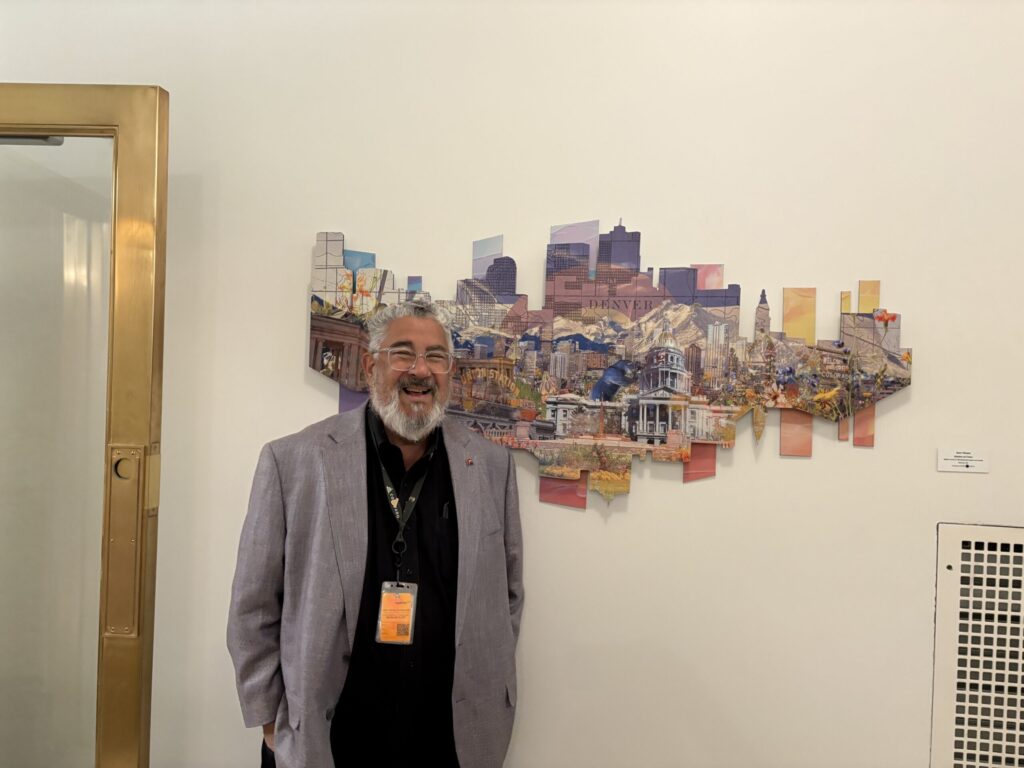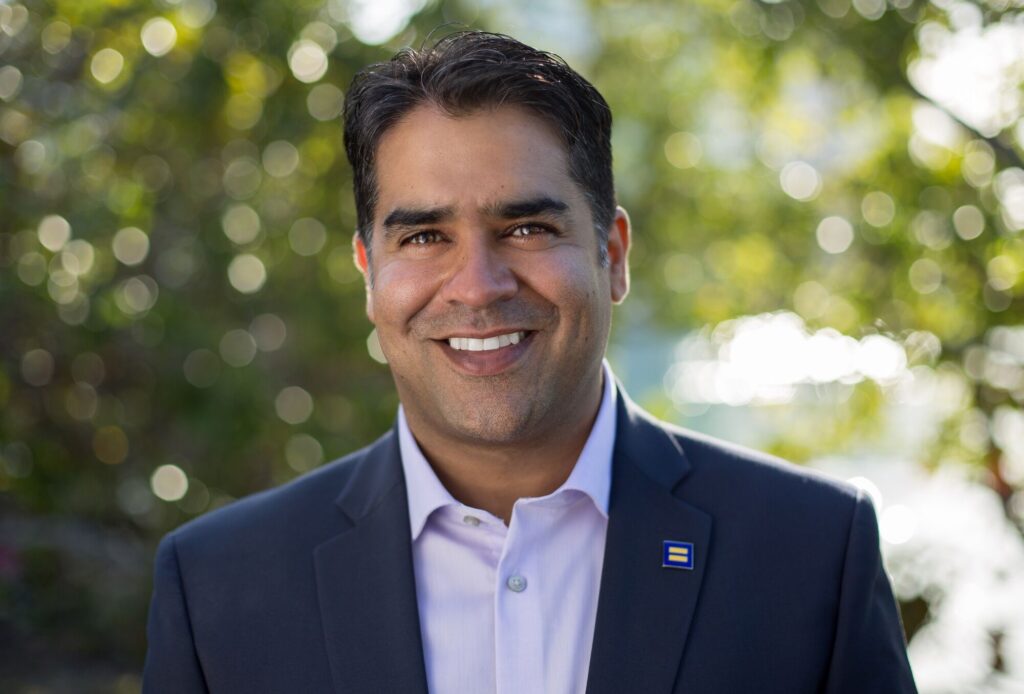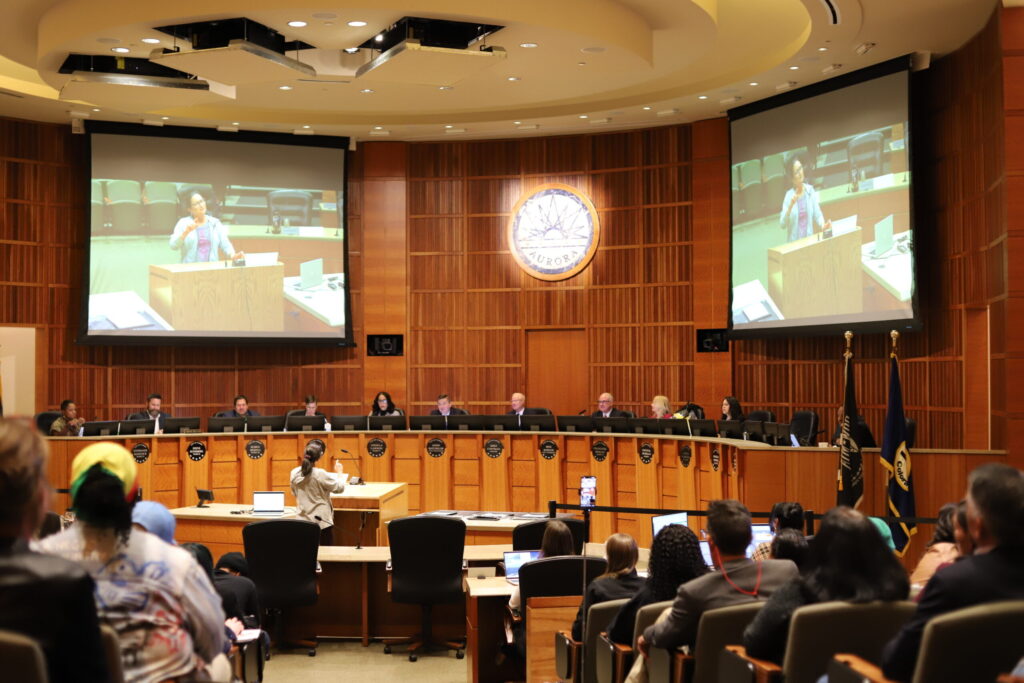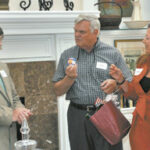Former Homeland Security chief Chertoff says citizen involvement is cornerstone of security
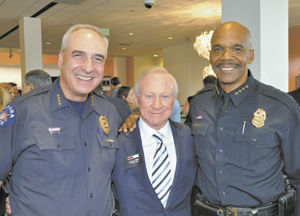
The United States is facing rapidly evolving threats unforeseen when the federal government established the Department of Homeland Security a decade ago, in the wake of the 9/11 attacks, a former head of the department told a Denver audience last week.
Michael Chertoff, the second secretary of Homeland Security, warned against the risk of biological terrorism, cyber attacks and the rise of transnational criminal outfits that might not adhere to a particular ideology but nonetheless threaten the safety of Americans at an appearance on July 12 at the Denver Art Museum.
“Some of the most significant plots that have been disrupted by law enforcement have been a result of a tip by private citizens, somebody who saw something and spoke up,” Chertoff said. “Whether it is being on the lookout for suspicious behavior or helping a neighbor out when there’s a natural disaster, individual involvement is the cornerstone of our security.”
Chertoff appeared at a presentation about emerging security threats at the grand opening of a redesigned exhibit at the Counterterrorism Education Learning Lab, known as the CELL, an interactive museum devoted to increasing awareness and aiding prevention of terrorism. Since its launch in 2009, the CELL has sponsored numerous talks by security experts, including current Secretary of Homeland Security Janet Napolitano, Chertoff’s successor.
While he hailed the killing of Osama bin Laden as a “welcome arrival of justice” for the mastermind behind the 9/11 attacks, Chertoff said the terrorist organization hasn’t disappeared but, instead, “continues to change and morph and spread around various parts of the world” as “franchise operations” and affiliated groups emerge in the Arabian Peninsula and throughout Africa.
“The fact that the threat has changed does not mean it has gone away,” he said, adding, “It will be incumbent on us to evolve our own defensive securities and strategies to meet these threats.”
Chertoff was interrupted five times by audience members who stood and challenged his premise, including one who yelled, “Less people have been killed by terrorists than bee stings! Why are we so scared of terrorism?” As security guards hustled the protester from the room, he added, “Terrorism is not real!”
Chertoff was joined by Clifford May, president of the Foundation for Defense of Democracies and a former editor at the Rocky Mountain News, for the panel discussion moderated by Dean Singleton, chairman and publisher of The Denver Post.
Chertoff and May agreed that sanctions are a necessary response to attempts by Iran to produce nuclear weapons, but they also said that military action might be inevitable because Iranian leaders aren’t the kind of rational foes the West is used to facing.
“They’re building nuclear weapons, that’s their goal, and they’ve been very specific about what they want to use those weapons for,” said May, who recalled witnessing the Iranian revolution as a young reporter in 1979. Maintaining that Iran’s leaders are intent on “overthrowing the West,” he asserted, “This is the most dangerous regime in this world in this century and it’s very important to recognize this.”
Chertoff told the crowd not to expect the Iranian government to respond to the policies that averted nuclear war with the Soviet Union or other nations with nuclear bombs.
“It would be very hard to assume that an Iranian regime with nuclear weapons would be subject to the same kind of deterrence that we had during the Cold War,” he said, adding that Iran’s rulers have different motivations than other nuclear powers.
“Frankly, they look at what happened in Libya and they think, ‘Wow, if Qaddafi had kept his nuclear weapons, he’d still be the dictator of Libya,’ and I think that enters into their minds. So you cannot count on deterrence, you cannot afford to let them have a weapon,” Chertoff said.
Asked by Singleton to name the biggest threat facing the country, Chertoff described three possibilities. In the near term, he said, localized attacks — including “a bomb in a mall or a bus station” or a terrorist spraying gunfire in a crowd — could be on the horizon. While those wouldn’t “pose an existential threat” to the United States, he said, “a series of attacks like that could start to have some real damage to the economy.”
Over the next five years, he predicted, the country could face “enormously damaging” biological attacks or serious dangers delivered over computer networks, and security forces had better be prepared.
“Often we are plagued in this country by the characteristic that, if something hasn’t happened before, we don’t get serious until it happens, and this is a case where one bite at the apple could get really dangerous,” he said.
May said it was important for the nation’s guardians to stay nimble avoid thinking they’ve got the enemy figured out. He said that what worries him is “a failure of imagination on our part — the inability to foresee what the bad guys might do.” On top of that, he said, he fears “that we will lose the will to defend ourselves, our culture, our nation, our civilization, that we will choose appeasement.” There is no way, he said, to “make ourselves inoffensive to our enemies,” adding that, “weakness is provocative.”
U.S. Attorney John Walsh — named Colorado’s top federal law enforcement officer by President Barack Obama — hailed the forum participants for their contention that Republican and Democratic administrations have stood up to threats with equal strength.
“There has been an enormous continuity,” Walsh told The Colorado Statesman as the event was concluding. “When it comes to the work of the Department of Homeland Security and the work of the FBI and the Department of Justice has been focused on protecting the American people, and doing it in a constitutional and appropriate way,” he said, adding that “this is not an issue that has to be a partisan one.”
Retired Air Force Maj. Gen. Bentley Rayburn, a two-time congressional candidate from Colorado’s 5th District, praised Chertoff and May for sounding the right alarms.
“It really depends on every citizen not only to stay vigilant but to be informed,” Rayburn told The Statesman. “There are a lot of threats, from state-sponsored Iranian terrorists groups down to your local nutcase.”
He added that his experience running war games for the military bolstered his agreement with the warnings the panel had raised about Iran.
“This regime in Iran thinks completely differently than we do in the West.” The Iranian government, he said, thinks that they are part of the “end times,” according to Muslim prophecy. “You take a guy who doesn’t think he’s going to die, and you’ve got a dangerous, dangerous combination. As bad as the Soviets were, they were at least rational. We can’t depend on them thinking the same way we do.”
— Ernest@coloradostatesman.com
Colorado Politics Must-Reads:



















